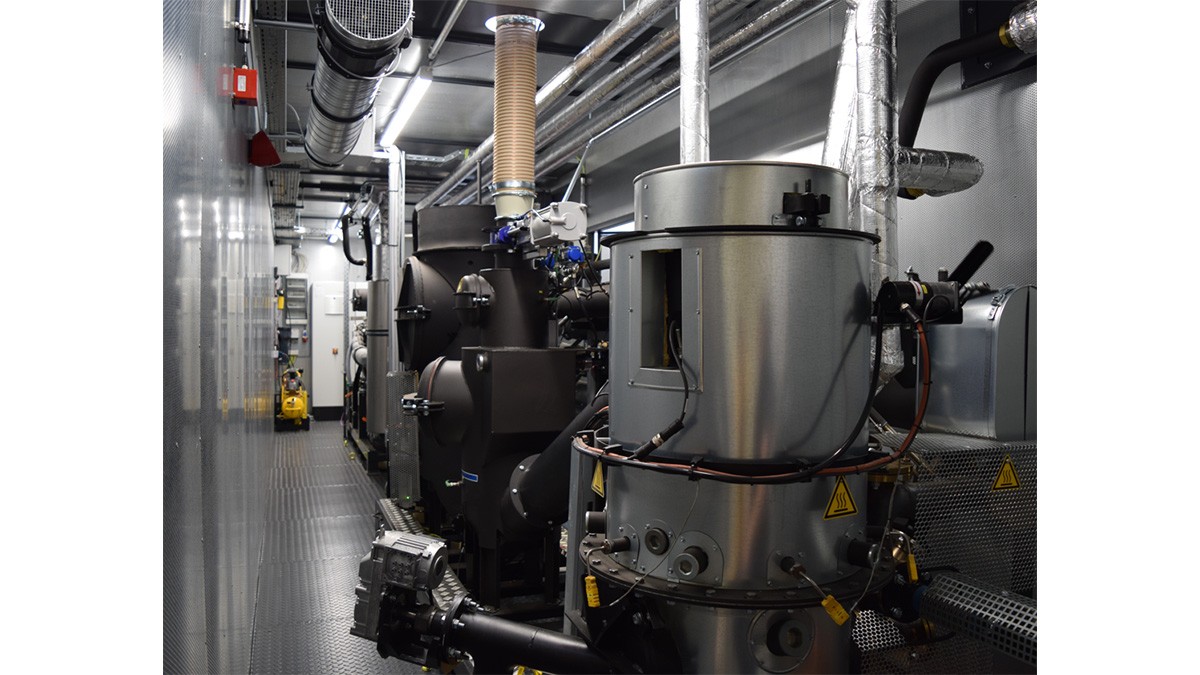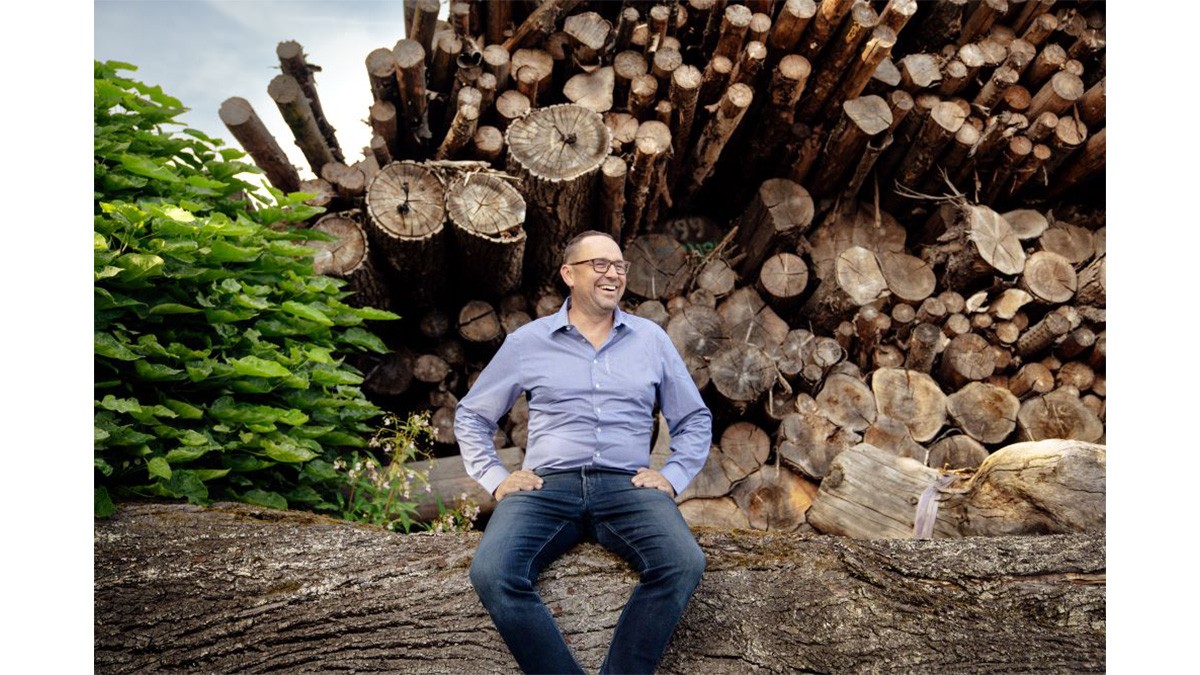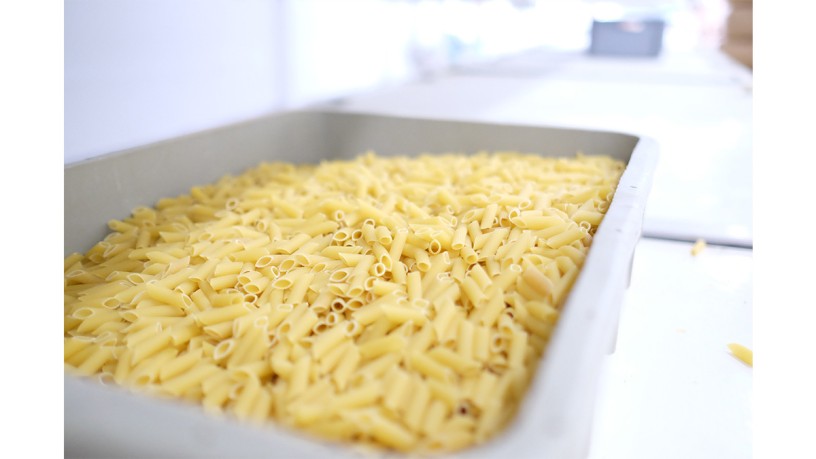Biomass Instead of Natural Gas
What role do wood gasification and combined heat and power (CHP) play in the generation of process heat for the food industry, and what other residual materials besides wood can be used effectively in your plants?
Thomas Bleul: For a long time, our technology was primarily used in the field of renewable energy feed-in. However, rising electricity, gas and oil prices are making it increasingly attractive for self-sufficient suppliers. For food businesses, wood gasification CHP opens up the possibility of generating electricity and heat according to demand and directly substituting fossil natural gas. In addition to forest wood and wood waste, approved waste wood, fruit crates, MDF chipboard scraps and plastic waste can also be used as fuel. This combines security of supply with economic efficiency – an advantage that is increasingly in demand, particularly in this industry.
What specific CO₂ reduction potential do your biomass plants offer compared to fossil fuels such as natural gas or heating oil, especially for energy-intensive industries such as food processing?
Thomas Bleul: Wood is considered CO₂-neutral in terms of its carbon balance. This means: When used, only as much carbon dioxide is released as the tree had previously absorbed. By replacing natural gas or heating oil, savings of 80 to 95 percent can be achieved. Sample calculations show that even medium-sized plants can avoid several thousand tonnes of CO₂ annually. Combined heat and power generation amplifies this effect, as both electricity and heat are utilised. This represents a clear efficiency advantage over conventional combustion systems.

„Re² EnergyBlock“ - die vorinstallierte Containerlösung zur dezentralen Energieerzeugung aus Reststoffen ©Spanner Re² GmbH
How can your systems help to secure process heat in businesses even at times when wind and solar power systems are supplying little or no electricity?
Thomas Bleul: Biomass plants are independent of the weather and the time of day. They supply energy exactly when it's needed. In practice, we couple the combined heat and power plant with buffer storage tanks and a peak boiler, so that the base load is reliably covered and load peaks are safely absorbed. Depending on the design, isolated or emergency power solutions are also possible. Furthermore, our systems can be integrated in hybrid concepts, for example with heat pumps or photovoltaics. One example is the "HKA 70 Process" system, which specialises in process heat generation (output: 63 kW electrical and 154.3 kW thermal). It also has a modular design and can be easily combined in a cascade configuration. This creates a flexible, predictable supply that is particularly indispensable for businesses with continuous process heat requirements.
How economical is the use of biomass plants for medium-sized food manufacturers, and what funding opportunities or financing models support a switch to renewable process heat?
Thomas Bleul: The economic viability is already assured today. As a rule, investments pay for themselves in around five years. In the contracting sector, costs currently stand at around 18.5 cents per kilowatt hour of electricity and 4.5 cents per kilowatt hour of heat – including fuel. And if the company uses its own waste materials or waste wood, the costs are reduced even further. In addition, there are subsidy programmes that cover up to 50 percent of the investment amount, depending on the concept. We support our customers in selecting the right models and applying for subsidies. This is how we create planning security for the transition to renewable process heat.
Are there already successful practical examples of food companies using your technology to generate decarbonised process heat – and what lessons can be learned from them?
Thomas Bleul: A particularly impressive example of this is Milchverwertung Ostallgäu eG. Twelve wood gas CHP plants of our HKA 70 Process type are in operation there, installed in a modular container solution. The dairy processes around 150 million kilograms of milk from over 400 farmers annually and is almost energy self-sufficient, generating its own electricity and process heat from regional wood chips. The total output is 756 kW electrical and 1,768 kW thermal. In addition, photovoltaic systems contribute to self-sufficiency. This enabled the dairy to completely replace fossil fuel oil and at the same time massively improve its carbon footprint.
Another example is the Löwenbäcker Schaper bakery in Braunschweig. There, the pallets are shredded and used as fuel. With an HKA-70 system, the company generates around 45,000 kilowatt hours of electricity per month, covering most of its own needs. The heat generated in the process supplies both the bakery and the hot water system. A waste product that previously had to be disposed of for a fee has become a valuable source of energy.
These examples show that: With smart fuel logistics, the right plant size and modular concepts, availability, cost-effectiveness and sustainability can all be achieved at the same time.
• What is Spanner Re² currently working on to further develop the technology, and what trends do you see in the long term for the decarbonisation of process heat in the food industry?
Thomas Bleul: We are working intensively on greater fuel flexibility, faster load changes and digital services such as remote monitoring and predictive maintenance. An important component is our pellet gasifier, which further simplifies operation and lowers the hurdle to entry. This "HKA Pellet" series uses classic wood pellets as an energy source and generates electricity, heat and gas from them.
The focus is increasingly on hybrid systems – a combination of CHP, heat pumps and storage. Process heat above 150 degrees, for example for steam or thermal oil, is also becoming increasingly important. At the same time, sustainability reporting requirements, such as those under CSRD, are increasing. Customers demand transparent data on their carbon footprint. With our solutions, we can provide this evidence, thereby paving the way for climate-neutral food production.
For additional information:
Thomas Bleul, Graduate Engineer (University of Applied Sciences)
Managing Director
Spanner Re² GmbH
Niederfeldstraße 38
84088 Neufahrn i. NB
Germany
E-mail:
thomas.bleul@re2.energy
Web:
www.re2.energy




